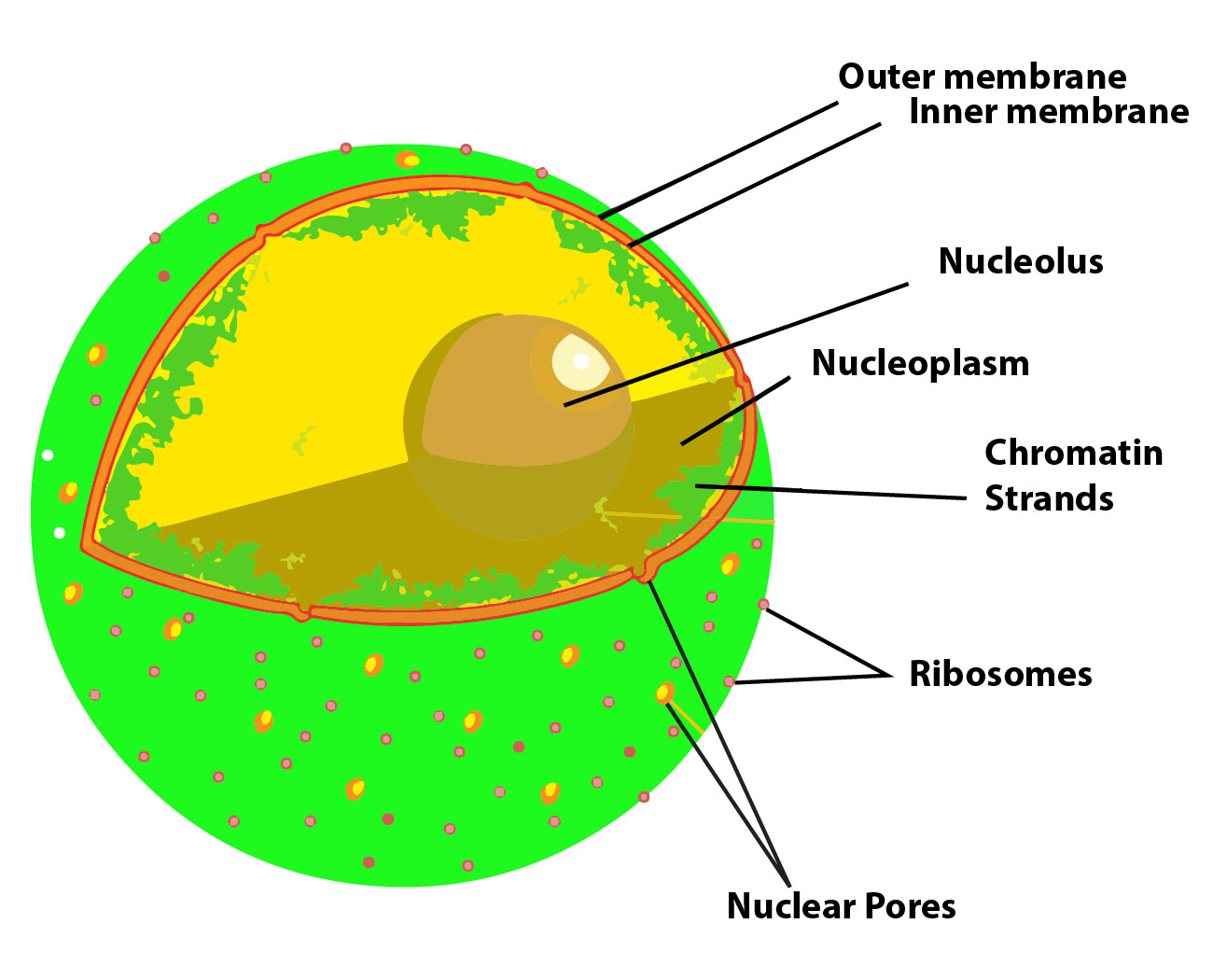
Nucleoli are rich in
(a) DNA and RNA
(b) RNA and proteins
(c) DNA
(d) RNA
Answer
558.6k+ views
Hint: Nucleolus (plural: nucleoli) is a structure found inside the nucleus that was identified using bright-field microscopy in 1830. It is seen that the egg cells of frogs that do not contain nucleolus cannot reproduce, thus proving the fact that nucleolus is essential for life.
Complete Step by Step Answer:
The nucleoli are the largest structures present inside the nucleus of a cell and they are nucleoprotein and spherical in nature. The nucleoli are rich in substances like proteins, DNA, and RNA. The process of ribosome biogenesis takes place in nucleolus which is the formation of ribosomes through the process of transcription of rDNA.

Since the nucleolus is involved in active ribosomal RNA synthesis, the cells that are associated with protein synthesis, have larger and more number of nucleoli present in them. Nucleoli are found in specific regions around the chromosomes which are known as nucleolar organizing regions.
Additional information:
- The fibrillar center (FC), the dense fibrillar component (DFC), and the granular component (GC) are the three regions into which the nucleolus is divided.
- The fibrillar region is the region of rDNA transcription.
- The proteins required for the process of rRNA formation such as fibrillarin are present in the dense fibrillar region.
- The granular region has other proteins such as nucleophosmin.
So, the correct option is ‘(b) RNA and proteins’.
Note:
- Nucleoli help during stressful conditions and are studied under treatment options for cancer chemotherapy.
- The nucleolus is not a membrane- bound structure and thus the contents of nucleoplasm and nucleolus are the same.
- Nucleolus is produced by the nucleolar organizing regions (NOR) present in a specific chromosome.
Complete Step by Step Answer:
The nucleoli are the largest structures present inside the nucleus of a cell and they are nucleoprotein and spherical in nature. The nucleoli are rich in substances like proteins, DNA, and RNA. The process of ribosome biogenesis takes place in nucleolus which is the formation of ribosomes through the process of transcription of rDNA.

Since the nucleolus is involved in active ribosomal RNA synthesis, the cells that are associated with protein synthesis, have larger and more number of nucleoli present in them. Nucleoli are found in specific regions around the chromosomes which are known as nucleolar organizing regions.
Additional information:
- The fibrillar center (FC), the dense fibrillar component (DFC), and the granular component (GC) are the three regions into which the nucleolus is divided.
- The fibrillar region is the region of rDNA transcription.
- The proteins required for the process of rRNA formation such as fibrillarin are present in the dense fibrillar region.
- The granular region has other proteins such as nucleophosmin.
So, the correct option is ‘(b) RNA and proteins’.
Note:
- Nucleoli help during stressful conditions and are studied under treatment options for cancer chemotherapy.
- The nucleolus is not a membrane- bound structure and thus the contents of nucleoplasm and nucleolus are the same.
- Nucleolus is produced by the nucleolar organizing regions (NOR) present in a specific chromosome.
Recently Updated Pages
Master Class 11 Computer Science: Engaging Questions & Answers for Success

Master Class 11 Business Studies: Engaging Questions & Answers for Success

Master Class 11 Economics: Engaging Questions & Answers for Success

Master Class 11 English: Engaging Questions & Answers for Success

Master Class 11 Maths: Engaging Questions & Answers for Success

Master Class 11 Biology: Engaging Questions & Answers for Success

Trending doubts
One Metric ton is equal to kg A 10000 B 1000 C 100 class 11 physics CBSE

There are 720 permutations of the digits 1 2 3 4 5 class 11 maths CBSE

Discuss the various forms of bacteria class 11 biology CBSE

Draw a diagram of a plant cell and label at least eight class 11 biology CBSE

State the laws of reflection of light

Explain zero factorial class 11 maths CBSE




